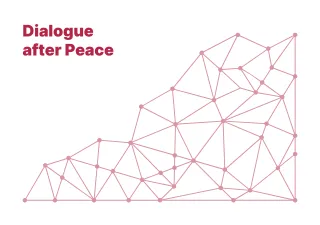Dialogue after Peace
A Gender Perspective on Track Two Dialogues in Colombia, Kosovo, and the Philippines
How do women-led Track Two dialogues contribute to sustaining and reimagining peace in post-settlement contexts?

This project focuses on dialogues led by women’s groups due to their positioning within civil society. In many contexts across the globe, women’s groups are at the forefront of grassroots activism for peace and social change. They often have a broad and diverse membership and are thus more used to internal dialogue across identities and positions.
In-depth case studies of women-led dialogue initiatives in these three contexts will be developed in a collaborative research process using methods from peace and conflict studies, gender studies, sociology, and anthropology, with the aim to co-create knowledge with dialogue practitioners and develop policy-relevant outputs that can inform national and international actors’ support to dialogues across the globe.
For the policy realm, the project stands to make an important contribution to our understanding of peace processes and provide lessons on how international actors can better support countries emerging from armed conflict.
Academically, this research makes novel contributions on three levels, by investigating peace as a bottom-up, gendered, and non-linear process.
Coordinator:
Swisspeace / Universität Basel
Partners:
- Swisspeace / Universität Basel
- University of Ottawa / Ottawa Dialogue
- Barcelona Centre for International Affairs (CIDOB)
- New Social Initiative (Kosovo)
- Artpolis (Kosovo)
- University of Prishtina
- CINEP (Centro de Investigación y Educación Popular), Colombia
- University of Ottawa / Ottawa Dialogue
- Barcelona Centre for International Affairs (CIDOB)
- New Social Initiative (Kosovo)
- Artpolis (Kosovo)
- University of Prishtina
- CINEP (Centro de Investigación y Educación Popular), Colombia
Funder/s:
Swiss Network for International Studies (SNIS)


